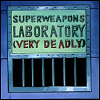
The internet is a tricky place. To me, it’s very much like a sorcerer’s castle filled with echo chambers and mirrors like the kind you’d find in a Robert E. Howard novel. Those who live in the castle often forget that the vast majority of folks out there aren’t in that keep as often as they are, and they’re not conversing or interacting with them in the same way, either.
I see this every day. I’m online a lot for work-related purposes, but the effects of being online so much mean that I hear about the outrageous and the unusual often. (Rarely, if ever, do I see solutions. Solving problems is boring. Pointing them out is easier.) Truth be told, I would be considered a super-user. If you want to see depictions of what internet usage really looks like and how income is a factor, check out www.pewtrusts.org.
The perception that popularity sells books is dangerous because it’s not necessarily true. The other piece to that is money. Of those who know about you, which percentage of that are your readers. Of those readers, who is willing to spend money on your books?
Why is this important to remember? Writers don’t sell books. Writers write books. Writers can promote books, but unless you have a shopping cart set up on your own site? Retailers sell books. So your best chance of selling more books is either to a) write a better book b) write more books or c) market the books you do have hoping your efforts will have a direct impact. c) is madness. Marketing never ends. This is what people do for a full-time job. You need data, measurable actions, etc. You could drive yourself crazy and take precious time away from your writing.
When online stores do sell books, there is no guarantee yours will ever resonate with readers. This is fact. You cannot bank everything on the popularity you think you have, because you really don’t know what will take off, what won’t, how that will financially impact you, or how long your popularity will last. (Or, as I like to put it: the only thing writers have control over is the blank page.) Remember, too, there is a specific sales pattern that almost every retail site follows which always favors certain titles. I know we don’t want to think of our books and games as products, but in terms of sales, that’s what they are.
So what of your presence online? Those who are online every day paying attention to what you’re doing are the anomaly. From that subset, you may get some folks interacting with you, but you’ll also get readers who never do and still buy your books or games. Not everybody seeks out the creator and when they do, they don’t necessarily do it to converse with you or buy what you want them to. For example, I see a lot of “writing advice” websites out there. Does it help sell your fiction? Telling how the coffee is made (or, as an alternative how you make your coffee) and selling a unique brand of coffee are not the same thing. You could be known for one and not the other. You could sell one side of that coin, too, and not the other — or both.
Knowing how readers interact with us and when is only one part of this discussion. We also have to assume that we don’t really know those anonymous readers perusing our thoughts and websites and blogs. We don’t always know the “who.” Is that an agent? Publisher? Reader? If you are always negative, always pointing out the flaws, always critical: what does that have to do with what you do best? Your Art? Then, when folks do hear about you, it’s not when you’re at your best. Typically, links shared occur when that topic goes viral — which is an outlier and not indicative of people as individuals, but moreso when folks are upset.
Almost everything I do online is intentional based on how I’ve structured my business. When you see advice and whatnot on my website, it’s because I am sharing about what I do to get work and to build a solid, professional foundation. When I talk about process, like I have for Redwing’s Gambit, it’s to show how much I love writing and all the things I do to tell good stories. But, this is not the same thing as selling books. This is more to talk about who I am knowing that a reader may interact with my website now or at some point in the future. Social media is different. Twitter and Facebook are more personal, because they’re more ephemeral, but they are still me. I have good days and bad days but in between, social media is about me the writer, not me the book.
What I want to see more of, is the celebration of what we do as writers, our books, and each other. I don’t care if you’re self-published or not. Veteran or not. Why? Well, for an incredibly selfish reason. I believe everyone has a story to tell and that the world changes for the better when people read. I believe that literacy can only occur through great books, through fans passionate about what we’re writing, and through the excellent people in both aspects of the publishing industry I’m involved with. More of that. PLEASE! Because when we do this? And get folks excited about books? That puts the emphasis back on great storytelling and less so on internet popularity. The more readers there are, the more everybody — regardless of visibility — wins. In my mind, you cannot be online expecting to sell books without trying to attract readers. Forget who they are and how they interact with us, and you will either fall into the traps laid by faulty perceptions or completely ignore why you have a presence online in the first place. I don’t care if you believe you’re online for yourself or not; you are putting a piece of yourself into a new medium and your words don’t fall into the abyss, regardless of who’s reading them or not.
So, to sum up: you the person is not you the book. Stop the hard sell. It doesn’t work. You wrote the book. What next? Write another one. Find readers. How? By writing. Not selling. By engaging. Not selling. By making smart decisions with the folks you choose to publish and sell your books. Stop trying so hard! STOP GIVING AWAY ALL YOUR RIGHTS AND UNDERCUTTING WHAT YOU’RE WORTH. Be awesome. Be yourself. BE REASONABLE. Don’t worry about other writers “surpassing” you, because the success you perceive doesn’t impact what’s on YOUR screen. Congratulate them. Write the book you want to read. Read more. Don’t sell. Let the salespeople sell. You need to write the damn book.
And, finally…
You do not have to make your own cool, you are your own cool. Stop worrying about what anyone else thinks and keep writing — change the world one reader at a time. STOP BEING AFRAID. If you truly, deep down, want to write about something in particular and it’s right for you, the way will open. (It has for me.)
Now let all the b.s. from the day/week/month/year go and tell me a good story, dammit! Thrill me and chill me. Give me your fiction and your non-fiction. Say something about the folks whose work was so amazing it touched you. This is what we writers do. We give our readers an experience. Let’s give them everything we’ve got.
Write like your life depends on it — I do!
- Mood: Was this a rant? Maybe a pseudo-rant…
Caffeinated Beverages Consumed: A few.
Work-Out Minutes Logged Yesterday: I lifted glass to lips.
In My Ears: Fans. (Freaky weather, this.)
Game Last Played: Last Night On Earth
Book Last Read: Varis by Phillip K. Dick
Movie Last Viewed: The Last Stand
Latest Artistic Project: *Still* *still* *still* need to take pictures…
Latest Release: “The Button” We Are Dust anthology and for gaming, a fun Scion: Extras (Supplemental Yet Can Be Somewhat Useful On Occasion Scions)
.

